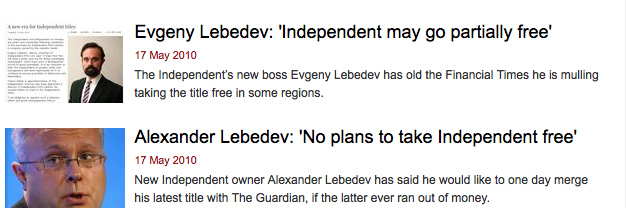Since its launch in October 2009, Hybrid News’ Asian Correspondent has built up a following of one million unique users per month, founder and managing director James Craven [below left] told Journalism.co.uk last week. 
The site received a traffic boost when blogger ‘Bangkok Pundit’ live-blogged the Red Shirt protests, with over 60,000 uniques over one weekend. “This month we will get past one million unique visitors,” says Craven.
A quarter of traffic comes from social media; another 25 per cent from organic search, with the other 50 per cent arriving via aggregation and direct links.
From January to March 2010 his New York based sales team brought in $251,000 in advertising from 35 advertising clients, he says.
As we reported in October, Craven wants the site to be a Huffington Post for Asia, but since then his ambition has developed further. Without revealing exactly what is in store, Craven says they are planning another online product, possibly geographical or topical.
 Where Asian Correspondent differs from HuffPo is in author compensation. Unlike Adriana Huffington’s site, which relies on unpaid contributors, Asian Correspondent pays its 38 freelance contributors – on average £2-300 per month, Craven says.
Where Asian Correspondent differs from HuffPo is in author compensation. Unlike Adriana Huffington’s site, which relies on unpaid contributors, Asian Correspondent pays its 38 freelance contributors – on average £2-300 per month, Craven says.
He’s optimistic for the growth of its advertising model: integrated packages that include advertising and the opportunity for guest blogs or interviews. The latter doesn’t affect the site’s editorial content, Craven says, because it’s “clearly a sponsored post.”
Asian Correspondent has developed an advertising platform for southeastasia.org, with customised sponsorship of destination guides. Universities have also proved strong advertising clients for the company.



